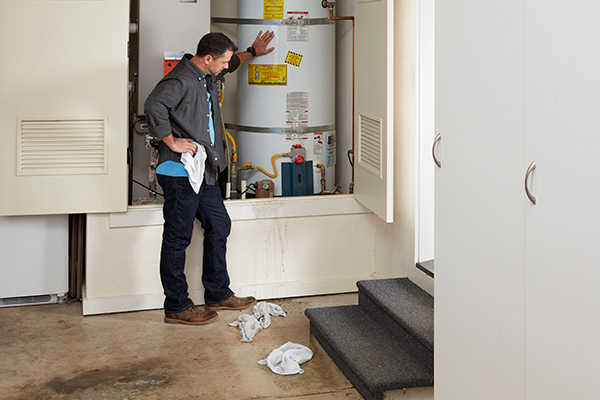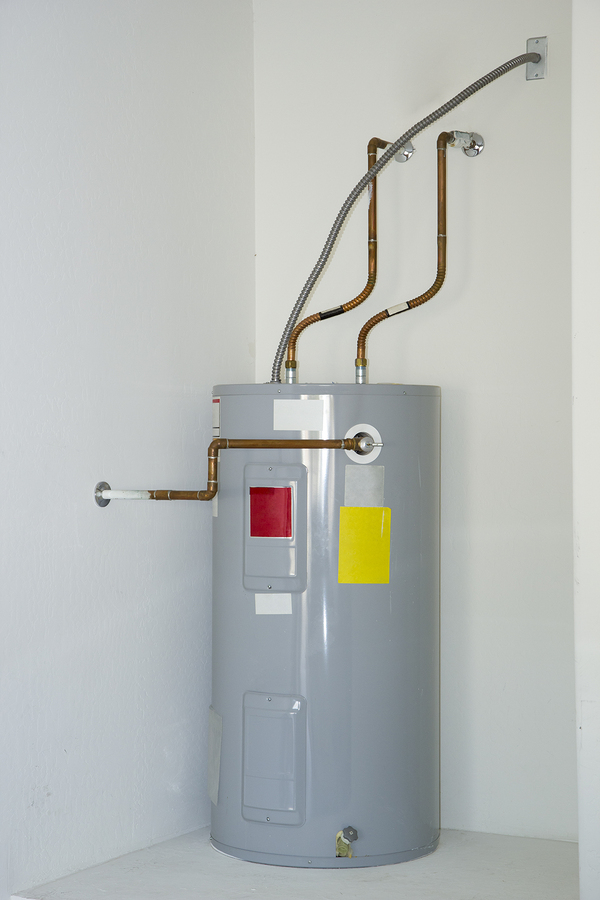Required Procedures for Residential Property Owners Dealing with Malfunctioning Heating Units
Required Procedures for Residential Property Owners Dealing with Malfunctioning Heating Units
Blog Article
Do you find yourself searching for content on How to Avoid a Broken Hot Water Heater?

Whether it is located in the basement or a different space, damaged water heating units can trigger stress. Having no hot water supply is also frustrating.
Call the Plumber
After doing the very first 2 security actions, you need to call your plumber to come immediately to deal with a ruptured water heater. Keep in mind that your unit will certainly not simply conk out considerably overnight. There are typically indications that your aging water heater has sediment accumulation in the interior. Make note of the following:
Don't wait on major flooding to call the plumber. By then, you will certainly need to spend more to recover your home. Rather, as soon as you find these signs, have a specialist pertained to inspect your hot water heater container. Usually, hot water heater have a life-span of concerning 8 to 12 years. With normal assessment and upkeep, you can prolong its life.
Cut Off the Cold Water Supply
Cut off the tanks faucet water supply from the source. This goes from your major water line right into the tank. When your container remains in good condition, the cold water quits filling up when the container is complete. However given that it is leaking, the water will certainly continue to stream. Close the valve found on top of the heater. Turn this clockwise to close it off. You must turn off that major water supply line outside your property if you can not discover it or reach it.
Shut Down Source Of Power
Before calling the plumber, shut down a gas water heater by turning the temperature dial. This is typically located at the top of the thermostat. If you have a version that works on electrical power, switch off the circuit breaker. This will avoid electrocution, particularly if there is a leakage as water is a conductor. Commonly, the burner turns off when the water strikes a details temperature level. With a broken storage tank, it might malfunction. Sufficing off assures you stay risk-free.
Tidy up Residential property
After calling the plumber, record damage by taking notes and also images so you can claim your house owner's insurance. Remove any type of standing water to protect against mold and mildew and also mold growth. If you have a submersible water pump, utilize that to drain the water.
Remember, if you notice any problems with your water heating system, call the pros right away. You can not take this issue gently due to the fact that a damaged thermostat can elevate water temperature to an alarmingly high degree, leading to unintentional burns.
After doing the very first two security actions, you have to call your plumber to come right away to deal with a ruptured water heating unit. Rather, as quickly as you spot these indications, have a professional come to check your water heating system storage tank. Prior to calling the plumber, shut off a gas water heater by turning the temperature dial. If you have a submersible water pump, utilize that to drain the water. Bear in mind, if you observe any type of concerns with your water heater, call the pros right away.
Is My Water Heater Broken?
The Water Heater is Old
No appliance will last forever. This includes a home’s water heater. During its lifespan, residents are going to face a situation where a new water heater installation will be necessary. The biggest problem with this is that most people are not sure when their water heater expires. Not knowing this can lead to serious risks if the unit begins to act up due to old age.
Most makes and models of water heaters will last between eight and 10 years. While 10 years is the age when water heater replacement is highly recommended, the need to replace the unit may occur before this time or after. If the unit doesn’t show any symptoms of a problem, it is a good idea to replace it at the 10-year mark (from the manufacture date).
Some of the symptoms that indicate a new unit is needed include rusting, leaks, noises, and a failure to heat up the water. Also, note that not all units have a 10-year life expectancy. The main exception to this rule is that a gas unit will last for six to eight years.
Rusty Heater Inlet Valve or Water
While steel is the strongest material on earth, it does have a weakness – rust. If corrosion occurs on a steel surface, it will begin to spread and eat through the steel in certain areas. On water tanks and pipes that are made of steel, rust is a warning sign of an impending leak.
The issue for many is trying to figure out if the rust is coming from the water heater or the pipes that lead to the faucet. If rust is seen, it is a clear indication that water heater service from the professionals is needed.
If rusty water appears out of the faucets in the bathtub or sink, it likely means a rusty water heater. If there is rust near the water inlet or the pressure relief valve, rust has likely developed inside the tank. If tap water appears rusty, it may be an issue with the pipes.
Strange Sounds from the Water Heater
Are there strange sounds coming from the tank? As a water heater gets older, rumbling noises may develop and get louder and louder as the water in the tank heats up. In homes where large amounts of hot water are used, the issue is likely going to be even more obvious when more serious issues arise. If there is a strange or loud noise coming from the unit, it is probably because of sediment buildup. A good way to remedy this problem is by flushing the heater. If this does not work, then a new unit may need to be installed.
Leaks
As a water heater gets closer to the end of its useful life, there is a higher chance there will be water around the tank. If there is water, this usually means leaks are occurring. Based on where the unit is located in the home, a leak may result in serious property damage.
Leaks are usually caused by expansions in the metal tank. The expansions occur as time passes and as the inside body of the tank is exposed to multiple heating cycles per day. When a fracture forms, the gap will be slight enough to hold the water in; however, in more serious situations, this will not be the case. If the tank is idle, the water will not leak but when the metal expands during each heating system, small amounts of water will get through the gap.

I found that page on Broken Water Heaters when doing a lookup on the web. Those who enjoyed reading our page kindly do not forget to share it. I treasure reading our article about Maintaining & Draining a Water Heater.
Your search ends; experts here. Report this page